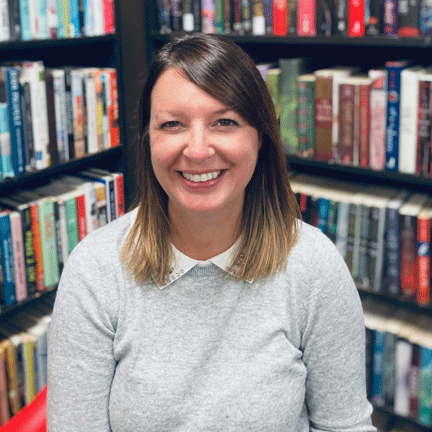I am generally a happy person. I am content in my home and work life, I usually look on the bright side, and I try to find the humor in most situations. But this school year, I felt a few negative emotions creeping into my teaching life: feelings of sadness, apathy, and envy. These emotions can drain your energy and make you feel hopeless, and in the case of envy, make you feel petty and small minded. I thought this year was shaping up to be one of the worst in my career until I came across an episode of The Alison Show podcast that gave a name to the emotions I was feeling. It made me realize that I could take these negative emotions and channel them into something good.
Sadness
The beginning of the school year brought several sad events, one on top of the other. Two of my former students died of heroin overdoses, another pleaded guilty to murder for the death of her five-year-old son, and yet another was arrested in a domestic violence incident. Each one of these stories affected me heavily, especially when I thought back to our interactions in class and our teacher-student relationships.
These were all students on the edge: students who had the potential for good, but with a lot of negative outside factors pulling them toward the bad, such as the lack of a stable and supportive home life, and mental health problems. I could clearly remember the small victories and personal moments I had had with these students, like the time Gabe came racing into homeroom to tell me he had stayed up all night reading a book in one sitting or the kind, personal letter Theresa wrote me when I lost my grandmother. I was invested in these students, and I had hope that they could make a life for themselves after graduation. I was devastated to hear these stories.
Was there anything I could do to have an effect on my students’ lives?
Did my class even matter when the odds seemed to be stacked against my students?
Of course, the answer to those questions is “yes.” The podcast episode used a quote by Leon Bloy to describe how sadness can actually be beneficial to us: “Man has places in his heart which do not yet exist, and into them enters suffering, in order that they may have existence.” I had not realized that my sadness was expanding my heart and opening it to more empathy for others, particularly my students. I could use this feeling to make me more sensitive to my current students’ needs and situations, more generous with my time and my listening ear. Instead of letting my sadness make me feel hopeless, I could use it as motivation to make sure my class was a place for students to feel a positive effect.
In a study done at the University of New South Wales in Sydney, Australia, participants watched either a happy or a sad film and then were asked to complete a demanding cognitive task afterward. The participants who watched the sad film spent more time and attempted more items on the task, showing that feelings of sadness can motivate us and increase our perseverance. The feeling of sadness can be positive, helping us reach out to others and strengthening our relationships.
Apathy
If you have ever had a group of apathetic students, then you will know how contagious this negative emotion can be. This year I had a particularly challenging group of high school boys who lacked interest in reading and had little motivation to do work or participate in class. It was a constant battle to keep them from just putting their heads down and sleeping from day to day. It was exhausting. One of our routines is to read for the first 10 minutes of class, which most of my students grow to love, but by December this group was as unresponsive as ever, picking up random books, fake reading, or flat-out refusing. They consistently asked if we could skip it, and I knew I had a problem when one day I gave in and bypassed the reading. Why bother? It seemed easier to give in.
This was not who I wanted to be as a teacher, and instead of growing apathetic myself, I decided to flip this negative feeling and remind myself that reading is my passion and that finding the right books for the right kids provides one of the greatest feelings of accomplishment that I experience as a teacher. I could use the feeling of apathy to remind myself that my students’ need for reading is great and to combat it with my excitement by doing more instead of less. This meant I redoubled my book-talk efforts and increased my one-on-one conferences with these difficult students. At first, their apathy made me want to avoid these things, but I knew that was not going to help the situation, and in time, we began making slow progress.
Envy
Following other teachers on social media sites such as Twitter [now X] and Instagram can be a great way to get ideas and inspiration for the classroom. It can be uplifting and fun. Except when it’s not. Scrolling through pictures of perfectly beautiful classroom spaces, and talk of wonderfully executed lesson plans, professional accolades, and accomplishments has at times left me feeling that I don’t measure up, that everyone else seems to be doing it right. I looked at my imperfect classroom or felt the disappointment of a lesson gone wrong. I clearly was not doing it right. I let these feelings of insecurity turn into envy, making me jealous of others’ accomplishments and creativity.
Jealousy and envy can easily turn to bitterness, but when you flip them to the positive, they can actually help you find more purpose and focus in your life. First you must ask yourself what this feeling is telling you about yourself, instead of how it makes you feel about others. Envy might mean there is something missing in your own life or something you want to be doing but aren’t.
Asking yourself these hard questions can lead to a renewed sense of purpose. I realized that I was feeling envious of all the classrooms with beautiful, flexible seating that appeared to be working like a charm, so I decided to do more research on this topic, which armed me with new strategies that brought about positive changes.
Professionally, I realized that it was people living out their dreams that gave me a pang of envy. This made me recognize that I really wanted to finish writing the book I had begun years ago but never made time for. In response, I reached out to friends and colleagues and formed a small writing group to hold me accountable to my goal. Using envy to help me pinpoint my needs and goals has given me a renewed focus and helped me take action instead of wallowing in self-doubt.
Pain as a Catalyst
Experiencing negative emotions is part of being human, but when they are coupled with the many other stresses of being a teacher, they can sometimes seem insurmountable or enough to make you want to throw in the towel and give up. Struggling through these emotions this year made me realize that when they are framed in the right way, they can be a catalyst for positive changes.
The work isn’t easy and can require facing some difficult truths, but it’s ultimately worth it. By flipping these emotions and looking at them in a different way, I was able to salvage what I thought was a terrible year and grow as both a teacher and a person.






